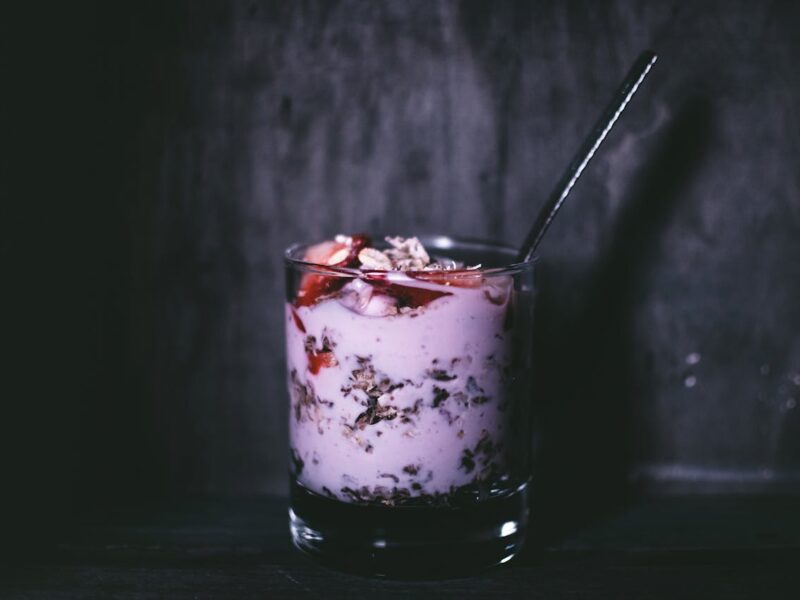Probiotics have become a household name in the world of health and wellness, frequently touted as a solution for everything from improving digestion to boosting immunity. But what exactly are probiotics, and how do they affect our gut health? To understand their role in promoting health, we must first delve into the science behind these beneficial microorganisms and explore how they interact with our bodies.
What Are Probiotics?
Probiotics are live bacteria and yeasts that are beneficial to health, particularly to the digestive system. While the term “bacteria” often has a negative connotation, many types of bacteria are actually essential for maintaining bodily functions. Probiotics are one of the good or “friendly” bacteria that help maintain the balance of microorganisms in the gut.
The human gut is home to trillions of microorganisms, including bacteria, fungi, viruses, and other microbes, which collectively form the gut microbiome. This microbiome plays a crucial role in digestion, immune function, metabolism, and even mood regulation. Probiotics are specifically beneficial because they help maintain the balance of the gut microbiome by increasing the population of good bacteria and preventing harmful microbes from proliferating.
How Do Probiotics Work in the Gut?
Probiotics have several mechanisms through which they support gut health. Here are some of the primary ways they function:
- Balancing the Microbial Environment: A healthy gut should have a balance between “good” and “bad” bacteria. Disruptions to this balance—often caused by factors like poor diet, stress, antibiotic use, or illness—can lead to digestive issues, inflammation, and other health problems. Probiotics help restore this balance by outcompeting harmful bacteria and ensuring that the beneficial microbes thrive.
- Enhancing the Gut Barrier: The intestinal lining acts as a barrier to prevent harmful substances, including pathogens and toxins, from entering the bloodstream. Probiotics contribute to the health of this barrier by promoting the growth of healthy cells and reducing intestinal permeability (often referred to as “leaky gut”).
- Supporting Digestion and Nutrient Absorption: Probiotics assist in the breakdown and fermentation of food, particularly fibers that are otherwise indigestible. This process produces short-chain fatty acids (SCFAs), which are important for gut health. SCFAs help nourish the gut lining, regulate inflammation, and provide energy to the cells that line the intestines.
- Modulating the Immune System: A significant portion of the body’s immune system is located in the gut. Probiotics can interact with immune cells to enhance immune responses, improve mucosal immunity, and reduce the likelihood of infections.
- Producing Beneficial Compounds: Certain probiotic strains can produce antimicrobial substances, such as lactic acid and hydrogen peroxide, which inhibit the growth of harmful bacteria. They also help maintain an acidic environment in the gut, which can discourage the growth of pathogenic organisms.
The Health Benefits of Probiotics
Research has shown that probiotics offer a wide range of health benefits. Here are some of the most well-documented advantages of incorporating probiotics into your diet:
1. Improved Digestive Health
Probiotics are most commonly associated with digestive health. They are often used to treat or prevent conditions like irritable bowel syndrome (IBS), diarrhea (especially that caused by antibiotics), and constipation. For instance, a study published in The American Journal of Clinical Nutrition found that probiotics could help reduce the frequency and severity of IBS symptoms by restoring the balance of gut bacteria.
In the case of antibiotic-associated diarrhea (AAD), studies have shown that probiotics can reduce the incidence and severity of diarrhea. Antibiotics kill both harmful and beneficial bacteria, which can disrupt the gut microbiome. Probiotics help replenish the lost beneficial bacteria, supporting a quicker recovery of the gut’s natural flora.
2. Enhanced Immune Function
The gut is home to a significant portion of the body’s immune system, and probiotics play a key role in maintaining and enhancing immune function. Certain strains of probiotics have been shown to improve the body’s defense mechanisms by stimulating the production of specific antibodies and increasing the activity of immune cells like macrophages and T lymphocytes. Research published in Frontiers in Microbiology suggests that regular consumption of probiotics can lower the incidence of upper respiratory infections.
3. Mental Health Benefits
Interestingly, the gut and the brain are closely connected through what is known as the gut-brain axis. This bidirectional communication pathway allows signals to travel from the gut to the brain and vice versa, influencing mood, cognition, and behavior. Studies have shown that probiotics can have a positive effect on mental health by improving symptoms of anxiety, depression, and stress.
For example, a review published in Psychiatry Research found that probiotics could have a beneficial effect on mood disorders by influencing the gut microbiota and its interactions with the central nervous system. While the exact mechanisms are still being explored, the evidence points to the possibility that gut health may play a role in regulating mood and mental well-being.
4. Weight Management
Emerging research suggests that probiotics may also play a role in weight management. Some studies have found that certain strains of probiotics, particularly those belonging to the Lactobacillus genus, can reduce the amount of fat stored in the body and promote weight loss. A study published in The Journal of Functional Foods found that probiotic supplementation led to modest reductions in body fat percentage and waist circumference.
Probiotics may influence weight through various mechanisms, including changes in gut microbial composition, modulation of fat absorption, and regulation of hormones involved in appetite and metabolism.
Choosing the Right Probiotic
With so many different probiotic strains available on the market, choosing the right one can be overwhelming. Not all probiotics are the same, and different strains offer different benefits. For example, the strain Lactobacillus rhamnosus has been shown to help prevent antibiotic-associated diarrhea, while Bifidobacterium species are particularly effective for alleviating symptoms of IBS.
When selecting a probiotic, it is important to choose a product with scientifically supported strains that match your specific health needs. Additionally, ensure that the product contains a sufficient number of colony-forming units (CFUs)—the higher the CFU count, the more bacteria the probiotic will introduce into your gut.
Brands like Bioma.Health have formulated probiotic supplements that contain strains backed by clinical research, designed to support a healthy gut microbiome and overall well-being. It’s also advisable to consult a healthcare professional before starting any new probiotic regimen, especially for individuals with underlying health conditions.
Conclusion
Probiotics are far more than just a passing trend—they are a powerful tool for maintaining and improving gut health. By promoting a balanced microbiome, enhancing digestion, supporting immune function, and even influencing mental well-being, probiotics play a critical role in overall health. As research continues to uncover new insights into the ways probiotics benefit the body, it is clear that these beneficial microorganisms have much more to offer than we originally thought.
However, not all probiotics are the same, and it’s important to choose the right strain for your specific health needs. As always, maintaining a balanced diet, regular exercise, and consulting with a healthcare provider are essential components of a healthy lifestyle. So, the next time you reach for a probiotic supplement, remember that these tiny bacteria could have a profound impact on your gut—and your overall health.
Want to unlock greater wellness?
Listen to our friends over at the Wellness + Wisdom Podcast to unlock your best self with Drew Canole of Organifi:







 How to Transition to a Green Home Without Breaking the Bank
How to Transition to a Green Home Without Breaking the Bank